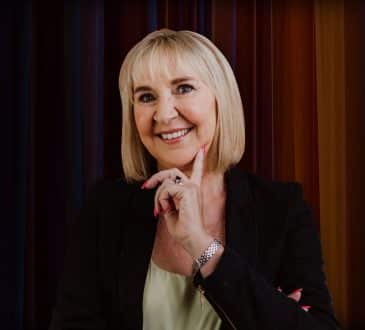Rethinking Organizational Strategy for Our No Normal® Reality

The past three years of disruption and volatility have shaken up the economy and society like a 7.6 quake on the Richter scale. No one predicted the speed-of-light rapidity with which the world would see disruption, turmoil, volatility, and adjustments.
The idea that we will “return to normal” or establish a “new normal” is preposterous. I’ve therefore trademarked the term, No Normal®, because we’ve undergone a profound change in “normal” and that makes it inconceivable that a new normal can superimpose itself on our society. Furthermore, normal generally means “average” or “typical.” It connotes conforming to a standard. In this time of new realities, we wouldn’t want to conform to outmoded metrics.
Instead, we all need to start thinking differently about strategy. The social proof is all around us — high-end restaurants today have embraced take-out food; Uber has changed urban transportation; the virtual meeting has become de rigeuer; and much more.
Combinations of instant communication, misinformation intermixed with fact, new risks, significant innovation in products and services, and evolving ambiguity have drastically changed the organizational environment. This means that organizations’ strategies have to be able to identify the various possibilities and implications of changes that are largely outside their control. Strategy must be sentient — capable of perceiving and sensitive to people and issues in the environment.
Here are some ideas for encouraging sentient strategy in your organization:
- Prepare for radical change even if you can’t predict its precise nature.
The pandemic wasn’t an isolated disturbance in the fabric of the universe. Prior to the pandemic, every top financial advisor I interviewed said they knew a shakeup of a major proportion had to be arriving soon, but they didn’t know it’s exact nature or source. We’re dealing with huge natural disasters constantly, and more nuanced fickle consumer tastes continually. What we experienced during and after the recent pandemic isn’t entirely novel in terms of disruption, though it is unique in its impact on current society and business. - Create simplicity and clarity, not complexity and opaqueness.
In determining your organization’s strategic approach, it’s important to know whatthe organization is about, and why that’s important and valuable. Future strategy isn’t about charts and graphs, it’s about beliefs and contributions to customers, the community, employees, and investors. But when people start to focus on how to implement strategy, the deviation is usually fatal to successful strategic formulation. That’s because once you take your eye off the future and start ambling around in the present, it’s not conducive to distinguishing the relevant benefits your organization provides that can lead it to successful growth. - Determine the organization’s key strategic factors.
Two to three strategic factors tend to dominate among those that an organization can employ to reach their desired future state. Some examples of strategic factors include brand and reputation, specialized customers, intellectual property, products and services, and method of sale or of distribution. The key is to clearly identify them, invest mightily in them, and monitor them for change. - Turn volatility and disruption on their heads and use them as offensive weapons.
In the face of a crisis, many try to hunker down or hide out in the hope that “this too shall pass.” But volatility and disruption — AKA turmoil, ambiguity, uncertainty, trauma — aren’t threats to guard against. Instead, they can be used to shake up and dominate a market. For example: Apple shook up the distribution business; FedEx shocked shipping and mail businesses; Carvana changed the auto sales business; storefront clinics and telehealth altered the health business. - Use innovation as your “through line.”
While great strategies provide the means to quickly shift resources and focus, they must include innovation as a key component. Although it sounds counterintuitive, in a time of crisis, innovation is more important than ever. You can’t dominate any market without constant growth, and you can’t grow without constant innovation.
In this No Normal reality, the ability to understand what we can’t control, and acknowledge it, and what we can control and manage it, is one of the fundamental differences of our day for organizational strategy.
Written by Alan Weiss Ph.D.
Have you read?
Why do so many women get fouled in the game of work by Anneli Blundell.
Venture Studios and The Healthcare Start-Up Industry: A Match Made in Heaven by Dr. Erik Reis.
How to Lead in Today’s Business Environment by Dr. Wanda T. Wallace.
3 Things We Learned About Crisis Management from the Collapse of SVB by Stephanie Craig.
One Night in Paris and Who I am Today by Jay Sidhu.
Bring the best of the CEOWORLD magazine's global journalism to audiences in the United States and around the world. - Add CEOWORLD magazine to your Google News feed.
Follow CEOWORLD magazine headlines on: Google News, LinkedIn, Twitter, and Facebook.
Copyright 2025 The CEOWORLD magazine. All rights reserved. This material (and any extract from it) must not be copied, redistributed or placed on any website, without CEOWORLD magazine' prior written consent. For media queries, please contact: info@ceoworld.biz










